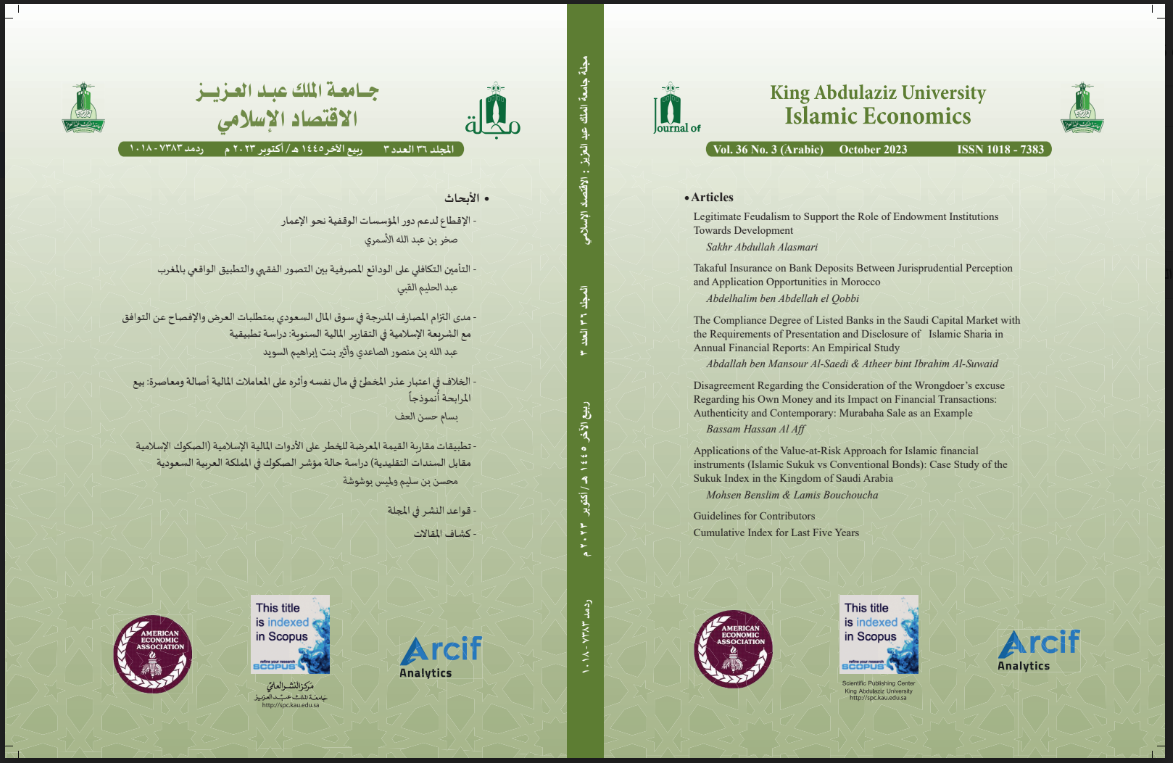Disagreement Regarding the Consideration of the Wrongdoer’s excuse Regarding his Own Money and its Impact on Financial Transactions: Authenticity and Contemporary Murabaha Sale as an Example
Main Article Content
Abstract
The study aimed to address a fundamentalist jurisprudential topic that represents a jurisprudential base for many Islamic jurists, which is the jurisprudential dispute regarding the consideration of the excuse of the one who made a mistake with his own money, then applying it to the jurisprudential branches in financial transactions, originality and contemporary, and the issue of Murabaha as a model for it. The researcher divided the research into three paragraphs, the first: in which he talked about the mother issue, which is the one who made a mistake with his own money, does he excuse his mistake or not? It is related to financial transactions, and the issue of Murabaha, according to the comparative analytical inductive approach, and the researcher concluded that the one who made a mistake with his own money by disposing of his money unintentionally is excused, but on the condition that he proves his claim with evidence, or a presumption, so that the door of claim is not opened, which leads to instability of transactions And the dispute in the matter resulted in the fruit of transactions, originality and contemporary, and in Murabaha, and Murabaha for the one who ordered the purchase.

